Today, 21 September 2021, as part of its Presidency of the Council of the EU, Slovenia is hosting a meeting of the Management Board of the European Border and Coast Guard Agency (Frontex) in Portorož.
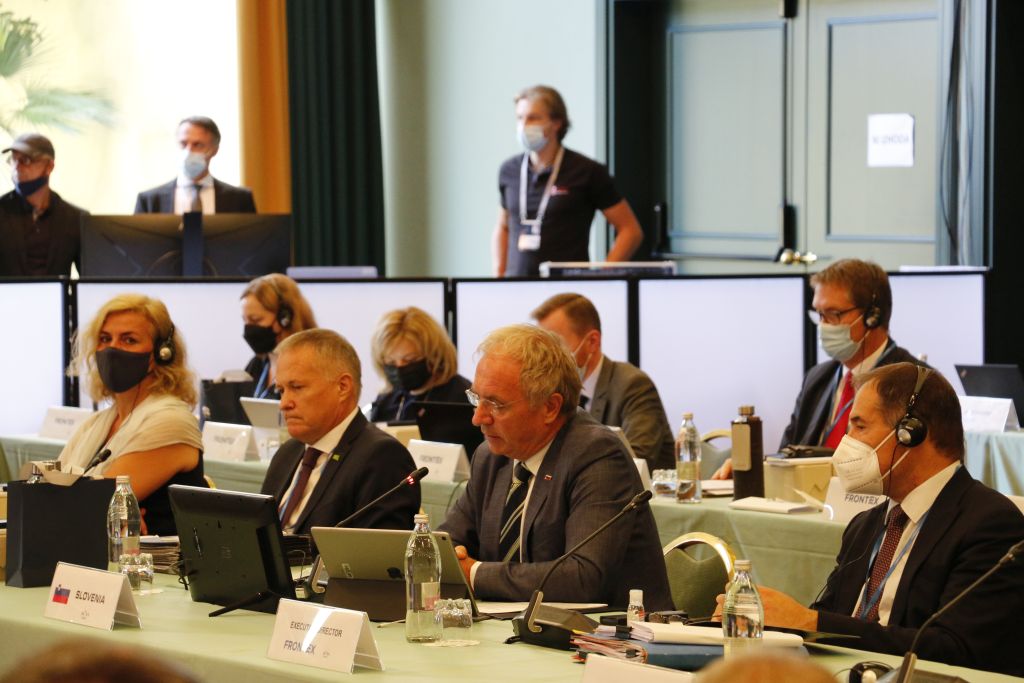
The two-day meeting at the Grand Hotel Bernardin was opened by the Slovenian Minister of the Interior and President of the Home Affairs Council, Aleš Hojs, who delivered the opening address.
On behalf of the Member States, Hojs said he had high expectations of the Agency, especially in respect of the Slovenian Presidency's priorities, which include the strengthening of the Schengen area and comprehensive migration management. "Expectations are high and Member States agree that we need to effectively protect the EU external border, with Frontex playing a vital role in assisting Member States under pressure." The Agency's activities in third countries are also important. "The Western Balkans region shares the EU destiny in terms of border management and migration. Those countries need assistance from an agency like Frontex," Hojs said, adding that the Agency and the EU as a whole have been closely monitoring the situation at the external border with Belarus and in Afghanistan.
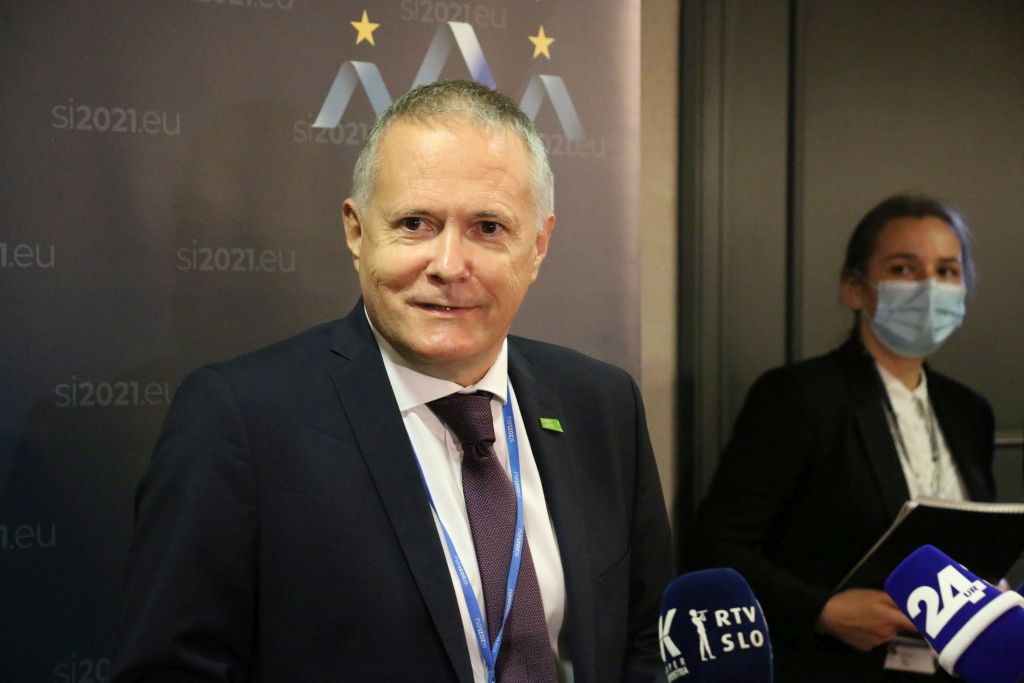
The Chairman of the Frontex Management Board, Marko Gašperlin, said this is the first Board meeting attended by its members in person after a long period of meetings through video conferencing. The agenda includes about 30 items, briefing the participants on the Agency's activities. "Of course, we will not be able to avoid assessing the current situation," announced Gašperlin, "in particular at the EU's land borders and in respect of a potential migratory pressure from Afghanistan. We will also discuss the implementation of individual provisions of the Regulation, which aims to enhance the efficiency of the states and the Agency in the area of return and surveillance of external borders."
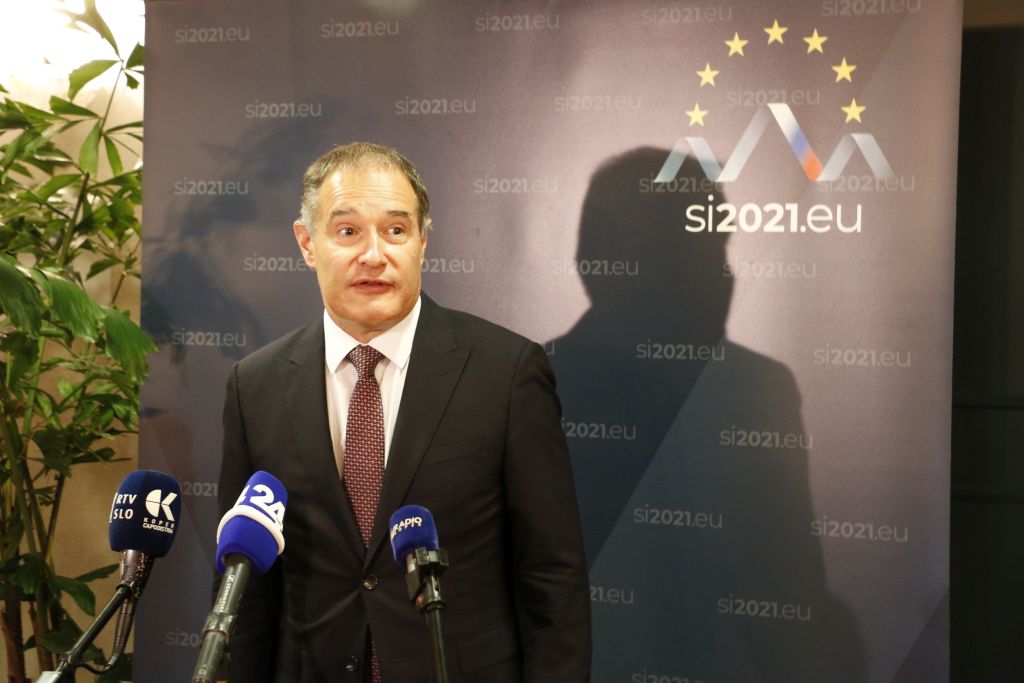
Frontex Executive Director Fabrice Leggeri pointed out "there are, currently, over 2000 European standing corps officers deployed at the European external borders and beyond, along with 189 patrol cars and 48 vessels. Their commitment to protect the area of freedom, security and justice is very closely aligned with the Slovenian Presidency’s slogan 'Together. Resilient. Europe'. One of the components of a stronger and resilient Europe is an effective external border management. Together, we are sending out a strong message: EU’s borders are controlled and we are committed to protect them from hybrid threats that aim to destabilise the EU."
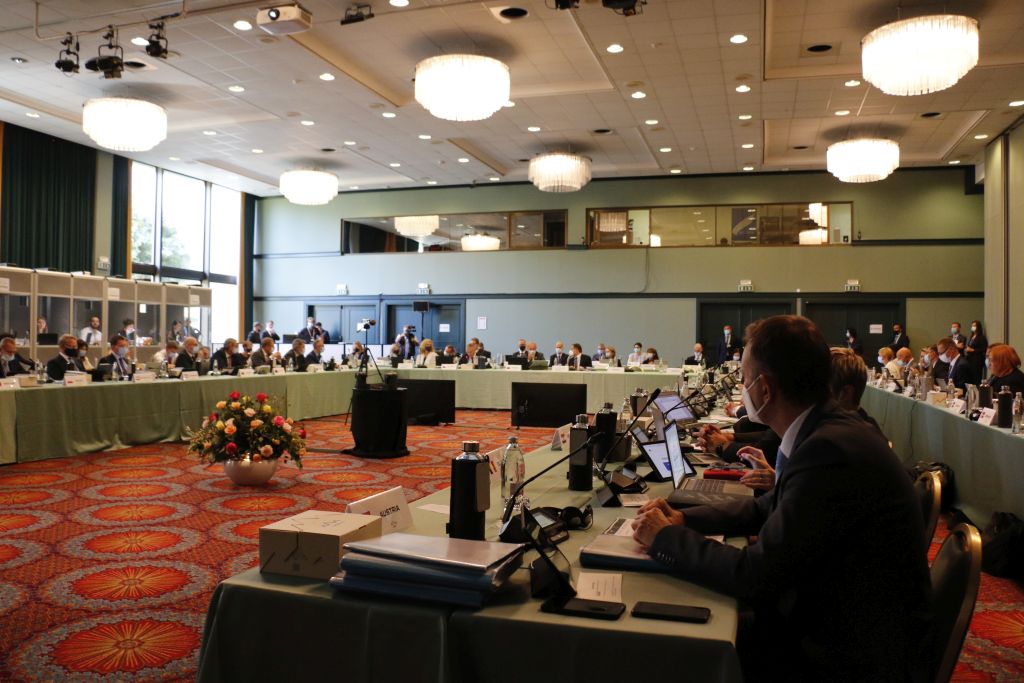
Discussions include topics related to fundamental human rights
The agenda of the meeting includes the adoption of several decisions relating to the future functioning of the Agency. The topics to be discussed include, for example, the standardisation of equipment handled by Member States in Frontex activities, the revision of the common risk analysis model and the rules relating to the information commissioner within the Agency.
A number of items on the agenda concern fundamental human rights issues, such as the drawing up of an action plan for the implementation of the recently adopted strategy in this area.
Further, the Management Board will address current operational issues and how to make better use of the financial, human and technical resources available to Frontex. The participants will also talk about preparations for two extraordinary Management Board meetings scheduled for October, at which three Deputy Executive Directors of the Agency are to be elected.
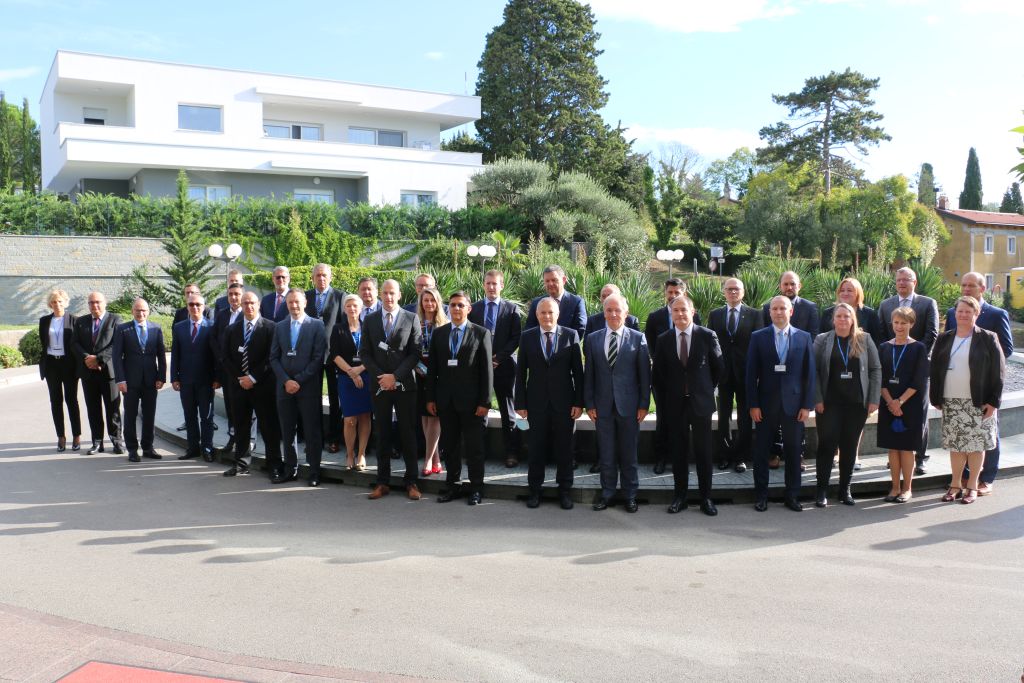
Representative of the Slovenian police has been the Chairman of the Frontex Management Board for the second consecutive term
This is the 86th regular meeting of the Frontex Management Board, this time hosted by Slovenia presiding over the Council of the EU. The tradition of the Presidency to host one of the meetings of the Management Board was interrupted during the Croatian, German and Portuguese Presidencies due to the Covid-19 pandemic.
The Management Board is composed of one senior representative of border guards or related services of each EU Member State and Schengen associated country and of two representatives of the European Commission. In addition to the Agency’s management, meetings are also attended by invited guests, this time from the European Parliament, the EU Fundamental Rights Agency (FRA) and the sister agencies (EUROPOL, EASO and EU-LISA). The Management Board holds five regular meetings a year and several extraordinary meetings, as appropriate. Its wide-ranging tasks are defined in the European Border and Coast Guard Regulation. The meetings are chaired by the Chairman; the Slovenian representative Marko Gašperlin was elected to serve in this position for the second consecutive term.
Related content


